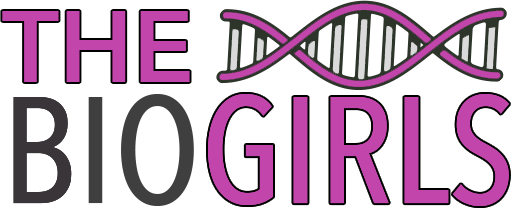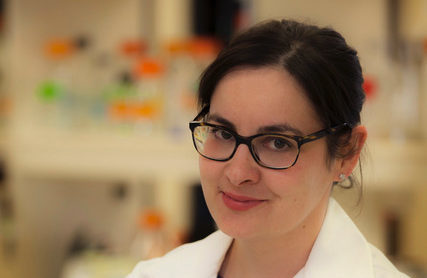Dr. Boudreau works as an Assistant Professor at the University of Dalhousie in Halifax, Nova Scotia, Canada. She is jointly appointed to the Departments of Microbiology & Immunology and Pathology. We asked her about her job, her career path, and her experiences as a female in the STEM field.
Can you explain what your job as an Assistant Professor in the Departments of Microbiology & Immunology and Pathology entails? What tasks do you perform on a daily basis?
I have a lot of jobs. My “on-paper job” is to teach, do research, and what is called “service”, which, for me, involves sitting on the Social Accountability and Graduate Studies Committees for the University [of Dalhousie]. I teach and coordinate an immunology class for third-year undergraduate students. My teaching responsibilities also extend into my research program where I mentor my students. I have 5 graduate and 3 undergraduate students right now, so I spend a lot of time teaching them as part of my research. A big part of my job is keeping the research programs on track. This involves the cerebral aspects relating to thinking, reading, and attending conferences, as well as the practical aspects where I act as a manager, boss, and CFO by doing things such as financial reports and other tasks similar to running a business. In summary, I do a lot of things!
What is your favourite thing about your job?
The graduate and undergraduate students that I mentor. The undergraduate student class I teach is great, but it’s 150 students, so in any one year I might get to know a handful of them who come to office hours but by and large, I don’t get to know them personally. My graduate students, however, I really do. I meet with everyone who works with me at least once a week and we talk about their research and their life. I get to know what’s going on with them, what their hopes and dreams are, and help to move them along their pathway. I find that part of my job the most fulfilling.
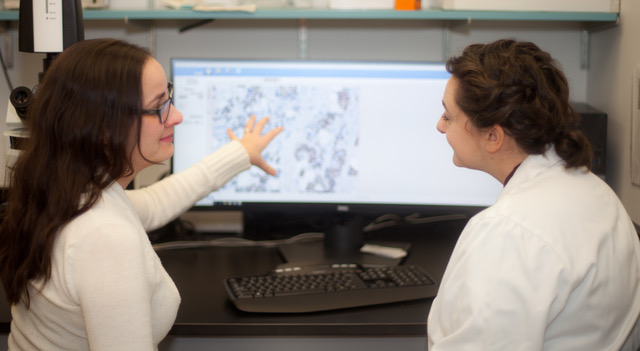
What is the hardest thing about your job?
[Laughs] The chronic rejection! One of the things I try to instill in my graduate students, especially the ones that declare they want an academic career, is resilience against that. Obviously, you should do your best work and try not to get everything rejected, but [in reality] that’s what happens. So, I try to make a point of demonstrating to them [my students] that I get rejected too, and how to fail gracefully and learn from these experiences to build on it.
When did you first learn about immunology, microbiology, and pathology and how were you made aware of the career options in this field?
This is such a good question because nobody tells you about this job, right? I have no other academics in my family at all. I was in a high school that happened to have a program where you could do a University semester, take one University course, and be placed in someone’s research program as a CO-OP student. I got placed in the lab of Dr. Laurie Hoffman-Goetz doing research around exercise immunology (how exercise influences the way your immune system works) because I was interested in science, human health, and biology. The part I really liked about that job was the immunology and biology, so after my CO-OP term I went to the University of Waterloo for my undergraduate degree and asked if I could return to Laurie’s lab, and she let me. I stayed with her for four years, did three NSERC summers and my Honours’ thesis with her and it was great. I left her lab with five publications as an undergraduate. Then, one day we sat down and had a “heart to heart” and I told her “I don’t know what I’m doing with my life.” She then asked me “Well, what do you want to do with your life?” and I said, “I want to make a difference, I want to do something important.” She asked me if I wanted to go to medical school and I told her “I don’t know, I don’t really want to follow the rules, I want to make the rules.” So, she was the one who put me onto graduate school and helped me pick out my PhD supervisor.
Along the way, as I was doing my PhD, I started to figure out what it really means to be an academic. So, I would say Laurie put me onto science but it was while I was a graduate student that I figured out I wanted an academic career, because I like the freedom to find your intuition and chase a path. I did my graduate work with Dr. Yonghong Wan at McMaster, and that focused on dendritic cell-based cancer vaccines. The original plan was to activate T cells, but it turns out that my DCs were really good at activating NK cells.
I had some great opportunities during my graduate degree where I met lots of other scientists at national and international conferences and somewhere along the line, I figured out I liked Natural Killer (NK) cells better than T cells. I was trying really hard to like T cells since I was in a T cell lab, but the NK cells just kept jumping in the way trying to tell me something, so I started to peel away from my supervisor’s expertise. I went to an international NK cell conference at the very end of my PhD and it was incredibly eye-opening because up until that point I had been surrounded by T cell and antibody-centric immunologists and nobody was really thinking about what the NK cells were doing. There, I met Dr. Kathy Hsu who I ended up doing my post-doc with later in my career. While I worked with Kathy, we started having conversations about how to run a lab and we wrote a lot of grants together, which really put me on the path towards becoming a PI.
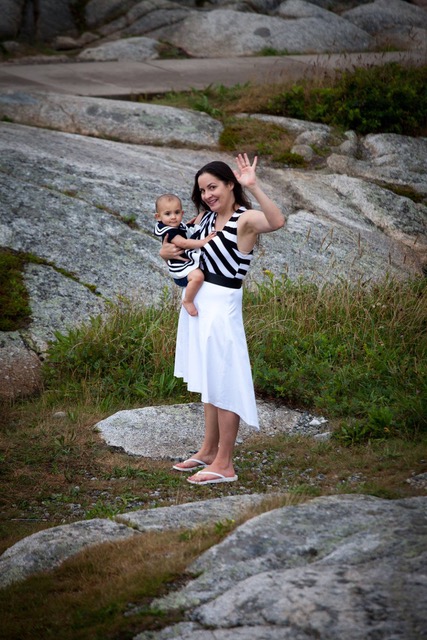
So, it was everybody and nobody; my knowledge of academia was a whole bunch of input from a bunch of different people that was coloured by different experiences that I had. I knew you could have this career where you do research, and then along the way, I pieced together what my specific research program looks like with influence from all these different people.
It seems like a lot of your key mentors were female. Was that intentional?
No, it just happened. It’s only now when I look back that I realize I was really lucky. I look around the departments where I grew up and came through and often I was working with the only woman that was Faculty, but it was not a conscious decision. I was cast into Laurie’s lab, but I did choose to stay. Almost all of my other professors were men, and I did work for a man in graduate school. For my postdoc, I chose the research that was exciting to me, which happened to be run by a woman. With that said, I had many conversations with Kathy about what I would consider more gendered topics such as when to have children, two-body problem, considering job opportunities for my partner when offered positions that require moving, etc. I hope those walls are coming down now, but I definitely think it was easier for me to ask those questions to a female mentor.
What made you interested in a career in these science fields? Was it clear to you from a young age that this was what you wanted to do or else what or who inspired you to follow this path?
My mentors Laurie, Kathy, and Wan helped me figure it out along the way. In graduate school, we would have trainee lunches with guest speakers. One speaker came and laid bare all the difficulties of being an academic. The whole class of graduate students thought “oh no, I’m going to do something else” except for me. I can remember for a while being the only person in the room [like that]. Still, I think along the way there are many times where you have to refresh that conviction. The picture that gets painted is that having a job in the pharmaceutical industry is somehow easier; it’s not. It’s a different path. I remember there were a lot of times along the way, especially during the hard times, where I had to navel-gaze and think “do I really want to stay in academia?” So, I think I decided from an early age, but it required refreshing that decision several times.
Can you give us a brief overview of your study and career path (i.e. where did you study and work before your current position)?
I did my undergraduate degree in Biomedical Science at the University of Waterloo and worked with Dr. Laurie Hoffman-Goetz. I then worked with Dr. Yonghong Wan for about 3 years at McMaster. Then I went to Memorial Sloan Kettering Cancer Centre (MSKCC) and worked with Dr. Katharine Hsu for my postdoc for just shy of five years. Following my postdoc, I took 5 whole days off and then started my current position at the University of Dalhousie in February of 2016.
Do you feel like you were always supported to pursue your career, or if you weren’t, how did you deal with that?
In general, yes. I think I was about 30 years old before it occurred to me that I was at a disadvantage [as a female]. There are more women than men as graduate students, but then somewhere along the line as a postdoc, you look around and think, “where did all the girls go?”. The other big thing maybe unique to me was that I didn’t live with my husband during my postdoc. My husband is a physician; he was in his residency program at the time. He is Canadian-trained and Canadian-licensed, so he was unable to come to the States with me without a lot of extra work. We made the tough decision that this was the right place for me to go and this was what we were going to do even though it was going to be hard. My husband was always supportive, but the world around us was not always. There were some fairly nasty things that were said about this career choice and how I was being selfish and putting off having a family and so on. So no, I didn’t always feel supported, but I felt supported by the ones that mattered.
As a woman in the STEM field, do you feel like you are currently supported in your role or are there any opportunities or aspects of your job you feel like you have a harder time accessing than men?
On paper, no [I don’t think there are any opportunities I have a harder time accessing than men], but I have to give a lot of credit to my husband. He is an equal partner in taking care of our daughter, which allows me to travel to attend conferences and do work in the evening. We had our daughter a year and a half into my time as a professor, so I took six months off with her, but the world keeps on moving. What I found really hard about that was that I was tired all the time and I had to go back to work and catch up. While having those 6 months was nice, it wasn’t very helpful in terms of maintaining my career. I think that is an area where I could have been better supported, although I don’t really know what the solution to that is.
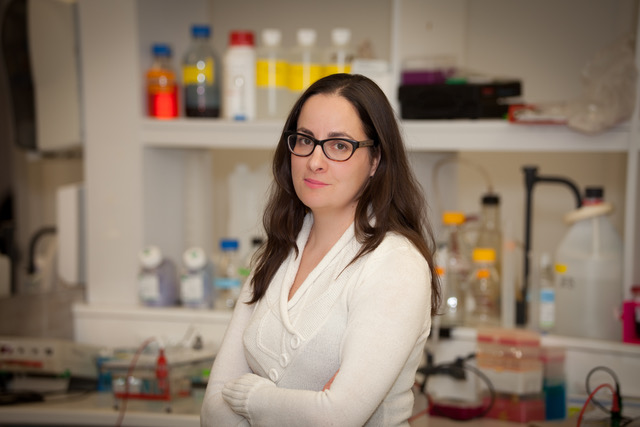
It still happens to me often that I find myself the only woman in the room. It happened to me a week ago in a meeting where I said, “You know what I think we should do? We should do this”, and we sort of talked around it until a few minutes later a man said “I think we should do this [repeated my exact idea]” and everyone ran away with it. So, I suppose I feel like I don’t always get heard the way that I might if I were a man.
Can you describe the culture of your institution (the social aspect, hierarchy, perspectives on time off for maternity/paternity leave or vacation, etc.)?
From a support perspective, it’s pretty good. I am jointly appointed to two departments (Microbiology/Immunology and Pathology), and when I told both department heads (one is a man and one is a woman) they were both universally excited for me. The one who doesn’t have children said “this is good, smart people should have babies”, so that was good. I have an open concept lab with two other immunologists so when I took the time off they really stepped up and told me I could keep my lab going and they would keep an eye on my students. Knowing that they were there and my students were looked after was really good. I do, however, miss the collegiality of being a trainee. We have a few social events, but I don’t have the same comradery as I used to have as a trainee.
How does the environment at your current place of work compare to others you have worked at?
MSKCC is probably one of the most well-funded research institutions in the world, so we did not want for anything when I was there. If you could dream it, you could do it; someone had the equipment and expertise. We don’t have that at Dalhousie, to be perfectly frank. There are so many labs [at MSKCC] so you had a lot of expertise to draw from. With all that said, the world is getting smaller and smaller. Something my postdoc mentor taught me was how to humbly ask for help from other people. What I learned from that is that most people are quite happy when you ask them to help with something they’re good at, so you can pull these collaborations together. So yes, at MSKCC I had everything in the world, but now I know that just because I don’t have it doesn’t mean I can’t do it.
My past work environments have also influenced how I mentor at my current institution. In the past, I worked with someone when I was a trainee and we just didn’t get along. You just need to realize how other people deal with conflicts. If I hadn’t had that experience, I might be a different mentor. I don’t fight my students’ battles for them, when they have a run in with each other I make them deal with it, but I care about it and I’m sensitive to it. I’m also teaching them how to manage conflict in a healthy, respectful way, so I think that’s a reflection of my past experiences.
What is the learning curve like for a career in your field – do you feel like you learned everything pretty quickly or did you have to work really hard for a long time to get your foothold? Is the learning ongoing?
I’d say I’m a duck. I’m calm on the surface, and I’m paddling like hell underwater. I’m learning constantly. I’m challenged all the time to learn more. I think if you’re not always uncomfortable with what you don’t know, you’re maybe not trying hard enough [in this field]. I got to the end of my undergraduate degree and realized I didn’t know enough about cancer. I got to the end of my PhD and realized I didn’t know enough about NK cells. I got to the end of my postdoc and realized I didn’t know enough about anything. The field is moving so fast. I have to keep up with the T cell field and the NK cell field and try to draw parallels between the two to see if the T cell field can inspire the NK cell field (since the T cell field is way ahead of us) and read a lot and go to as many meetings as I can.
What are the transferrable skills you may have gained from other jobs that you were able to apply to your current job (e.g. organization, leadership, reading, writing, attention to detail, etc.)?
Kathy is a phenomenal writer, so she more than anybody challenged me to be a better writer. She would dissect my writing with me. When I was a PhD student, I would draft the first version of the paper and then we would send it back and forth with edits. When I worked with Kathy [for my postdoc] we would sit together and literally read the paper out loud to each other and pull things apart. She would pull out a sentence and ask “what do you mean by this? That’s not what this sentence says.” I think that made me a better writer. Now, I do that with my own students in what we call “writers circles”, where we get all the authors that we can in a room and everyone picks apart each other’s writing. The rule is that we’re just talking about the paper, it’s nothing personal, and when we’re done, we’re all still friends. So that was a great transferable skill I gained from my past experiences as a trainee.
Looking back, is there anything you would have done differently to get where you are now?
A couple things come to mind. In the show The Office, there’s a line that Ed Helms [Andy Bernard] has in the very last episode where he says “I spent all my time at Dunder Mifflin talking about Cornell and now that I’m not at Dunder Mifflin I think about Dunder Mifflin all the time. I wish there was a way to know they were the good old days while you were still living them.” That resonated with me because as a postdoc living away from my husband I think I maybe spent too much time worrying about how to get home quickly. I always wanted the next paper and it was devastating when a paper got rejected because that felt like a step backward. I skipped seminars that now I would have loved to go to because I was in a rush to get things done. I wish that I had taken time along the way to enjoy the ride. I wish I could tell my former self that it’s going to be okay and I can take the time to do those things, but because of the uncertainty with how my training was going to turn into a career I felt guilty every time that I wasn’t working. So I wish I had taken more time to enjoy the experience.
What would you say to other women who might be interested in a career like yours if they aren’t sure if they’ll be able to succeed or where to start?
I would say you’re smarter than you think you are. Go find a good podcast or something about Imposter Syndrome and show yourself that you have it so you can get past it. Women tend to think that they’re not worthy of doing something more often than men. It’s echoed in how people write reference letters. People are more likely to write more factually and effervescently about men, [while they] write about women’s contributions or their personality. Even when people are asked to write about themselves, men and women write like this. I think it’s worth educating yourself about these things so that we know to avoid them.
I think it’s really easy to convince yourself that you’re incapable or unwilling to do something. I would tell women to be unapologetic about their accomplishments. We have to live under the assumption that people are going to make assumptions about you based on your gender, it’s an unfortunate reality for us, so don’t make it easier for them to disqualify you.
